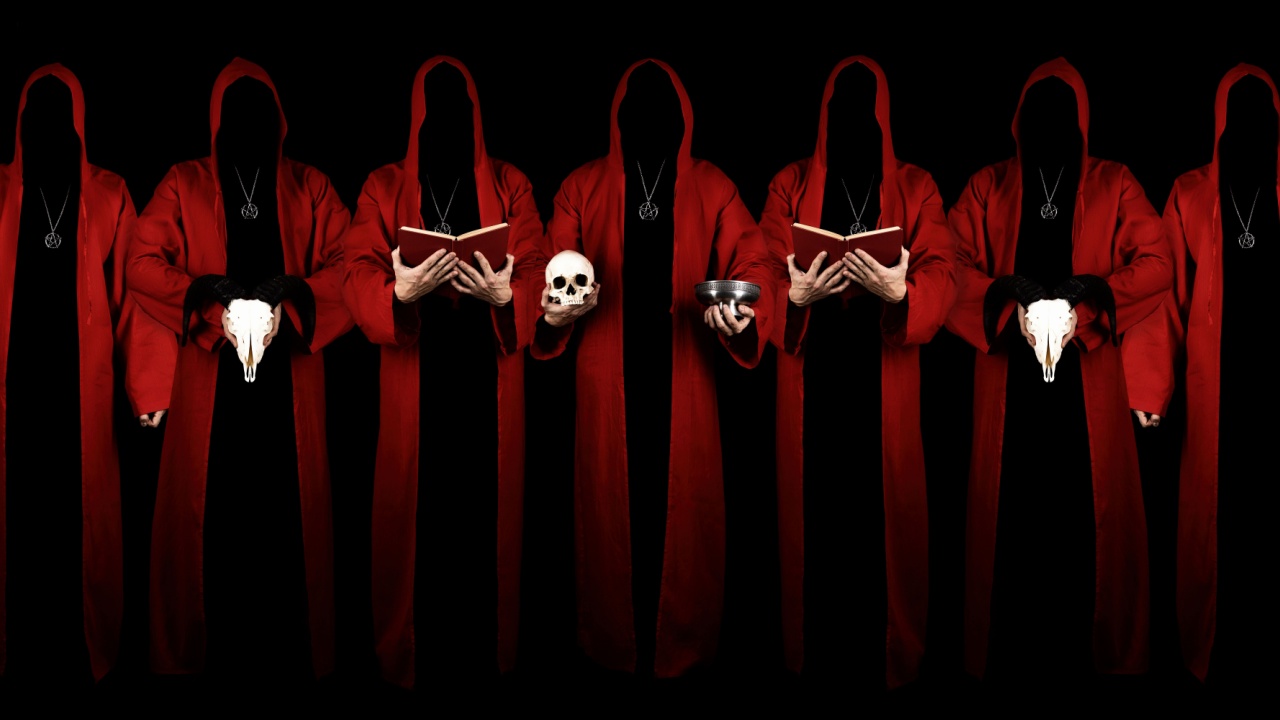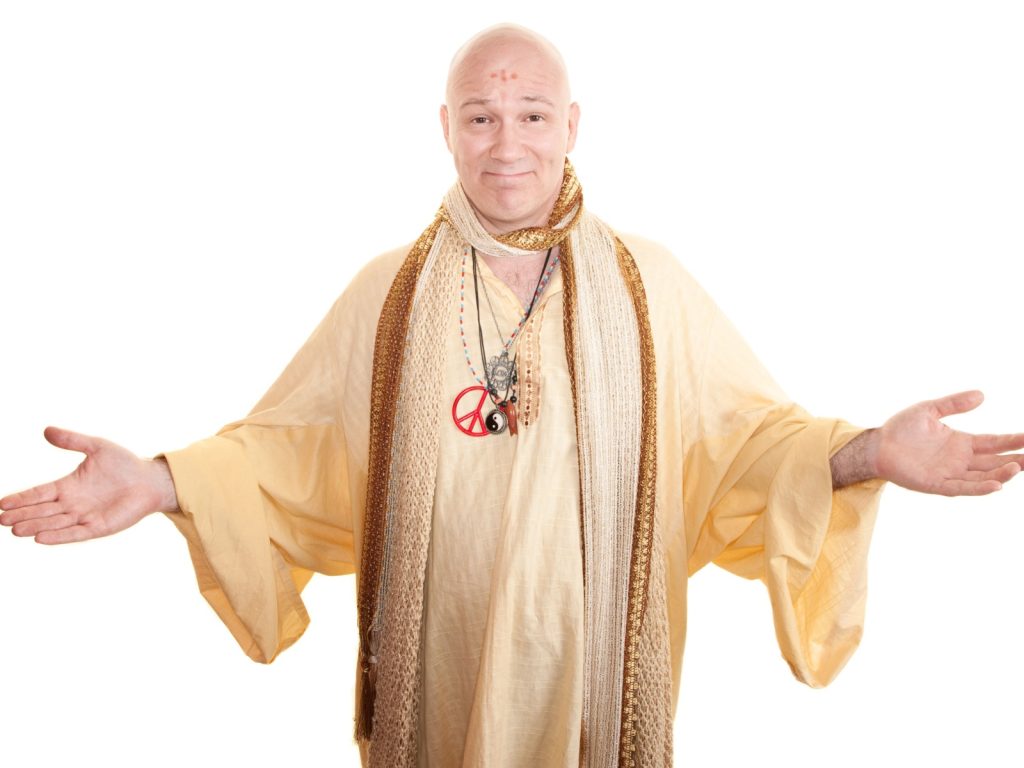Have you ever questioned whether a group you’re considering joining might be a cult? It sounds ridiculous, of course, but there are a frightening number of groups out there, not just religious organizations, who operate like a cult, preying on people and using the same tactics to lure and keep people on the inside.
It can be subtle, too. I consider myself pretty well-balanced and knowledgeable, but for a year, I was essentially trapped inside a cult-like group before I managed to break away. This group was not a religious one at all, but instead, a mastermind for digital publishers and creatives. It’s shameful to admit I got duped. I’m still furious at myself. But it happened gradually and became all-consuming and anxiety-inducing. Their whole business model was designed to prey on people desperate to save or grow their business in a time of intense and difficult change within our industry. But once you were in, it was very difficult to get out. And the fear of repercussions is very real.
Being aware of warning signs is crucial for your safety. Protecting yourself and your loved ones should be a priority. Understanding these red flags can help you make informed decisions.
When looking into a new group, stay alert for any concerning behaviors. Educate yourself on what to watch for. Don’t ignore your instincts if something feels off. I ignored my gut which was screaming at me that something wasn’t right, but I just put it down to me having to wrap my mind around a new way of doing things and, you know, perhaps these leaders and their inner circle were just “different” than me. I was made to feel like I was the weird one and I had to conform.
1. The leader is the ultimate authority

If the leader of the group demands unquestioning obedience and claims to have all the answers, it might be a cult. A healthy organization encourages questioning and open communication. Not the group I was part of. There was one way, one opinion, and that was that.
2. The group is elitist and secretive

Cults often believe they are superior to others and may keep their practices hidden from outsiders. If a group is unwilling to share information about their beliefs and activities, it could be a warning sign.
3. There is a strong “us vs. them” mentality

Cults frequently create a sense of separation between their members and the outside world. If a group encourages you to cut ties with family and friends who are not part of the organization, it may be a red flag. Yep, in the group I referenced, the labels were literally “Insiders” and “outsiders”.
4. Your personal life is controlled

If a group tries to control your daily life, including your relationships, living arrangements, and career choices, it might be a cult. A healthy organization respects your personal autonomy.
5. You’re encouraged to spend a lot of money

Cults often pressure members to donate large amounts of money or buy expensive courses and materials. Be cautious of groups that emphasize financial contributions over personal growth. Yeah, we all spent a huge amount of money to be part of this group, and they even kept 40-50% of your earnings for the use of their tech (which is actually free, it turns out).
6. The group uses manipulative recruitment tactics

If a group uses high-pressure recruitment techniques, such as love bombing or guilt-tripping, it could be a cult. A genuine organization will allow you to join at your own pace without manipulation. Oh yeah, this one was a big part of their recruitment tactics, although I didn’t realize it at the time. I was actually naive enough to think I’d found some people who were just “nice” and who valued me and my skills. They love-bombed the hell out of me, couldn’t do enough for me, seemed to bend over backward to help, and then came the intense and anxiety-inducing guilt-tripping. It was brutal.
7. There is no tolerance for critical thinking

Cults often discourage members from questioning their beliefs or practices. If a group doesn’t allow you to think critically or voice concerns, it may be a warning sign. Yep. Questioning practices and guidance was shut down hard and immediately. And posts asking for any kind of transparency or that asked for advice about other ways of doing things in the group meeting channels were quickly deleted. Or the person would be belittled and derided.
8. The group has a charismatic leader

Many cults are centered around a charismatic leader who demands devotion from followers. Be wary of groups that idolize their leader and claim they have special powers or abilities. In my former group, the very charismatic leader was the frontman, the uber-good guy who we all had to worship and adore. His Word was Gospel. You were not allowed to disagree with this guy. His henchmen would come for you if you tried. He also played the martyr – the rest of the internet were out to get him. I had to listen to one of his Inner Circle tell me that Google were personally “out to get” this dude, like he was even a blip on Google’s radar. Idiots.
9. There is a focus on apocalyptic or doomsday scenarios

Some cults obsess over end-of-world prophecies or apocalyptic beliefs. If a group seems fixated on doomsday scenarios, it might be a red flag. Indeed, the mastermind I escaped from was all focused around the Endtimes of digital publishing and how only those with insider knowledge would survive.
10. The group has its own unique language

Cults often develop their own jargon or terminology that is used to create a sense of belonging and exclusivity. If a group has a language that is difficult for outsiders to understand, it could be a warning sign. Yep. Everything had a different name than what it was actually called, and there were a lot of random acronyms that you were just supposed to know the meaning of.
11. There is a lack of transparency

If a group is not open about its leadership structure, financial dealings, or decision-making processes, it may be a cult. A healthy organization is transparent and accountable to its members. Lack of transparency, people penalized or kicked out because they dared to question something, lies, secret groups of sycophantic inner circle members within slightly larger secret groups of inner circle members – there was a lot of convoluted, multi-layered nonsense going on, with a veneer of simplicity on top, built on a foundation of scams and lies and manipulation.
12. You have a gut feeling that something is wrong

Trust your instincts. If something feels “off” about a group or its practices, don’t ignore your concerns. It’s always better to err on the side of caution when it comes to protecting yourself from potentially harmful organizations. As I said, I knew something was “off” but I wrote it off as it just being me being weird. The “offness” was normalized and anyone who, like me, felt like something wasn’t right, was made to feel like the wrongness was with us, not with the group. We just had to work harder to be part of the community so that we could see the “truth”.
13. Fear of Repercussions

If you have to be fearful of repercussions if you dare to speak up or leave, you’re likely in a cult. With this group I’m talking about, that fear is real, hence I haven’t named names. There are a couple of support groups of ex-members who are so afraid of repercussions that they meet in secret, using fake names and profiles. And remember, this wasn’t a religious group or anything – just a business mastermind. But ex members face a lot of hate and, especially those who were put through the wringer before they managed to escape, are really afraid of having their businesses and their lives harmed by the inner circle.
Thankfully, I got out. I’m in a better place, and I learned a huge amount – about how not to treat people, how not to conduct business, how far to trust people, and more. I’m still angry at myself for getting sucked into that situation, but I have to remind myself that these people are master manipulators. And people with far bigger businesses and audiences than mine got sucked in too.
Katy Willis is a writer, master herbalist, master gardener, and certified canine nutritionist who has been writing since 2002. She’s finds joy in learning new and interesting things, and finds history, science, and nature endlessly fascinating.
